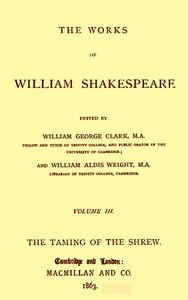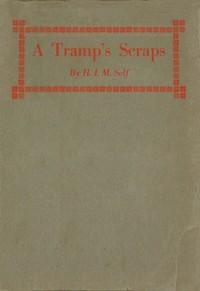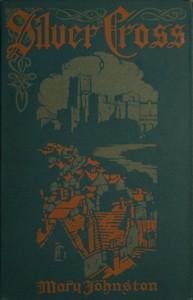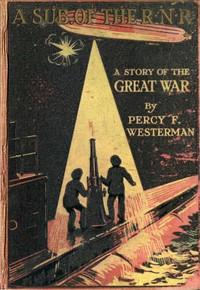Read this ebook for free! No credit card needed, absolutely nothing to pay.
Words: 158334 in 88 pages
This is an ebook sharing website. You can read the uploaded ebooks for free here. No credit cards needed, nothing to pay. If you want to own a digital copy of the ebook, or want to read offline with your favorite ebook-reader, then you can choose to buy and download the ebook.


: The Works of William Shakespeare [Cambridge Edition] [Vol. 3 of 9] by Shakespeare William Clark William George Editor Wright William Aldis Editor - English drama
BYGONES WORTH REMEMBERING
"Look backward only to correct an error of conduct for the next attempt"
George Meredith
Volume II
Were Plutarch at hand to write Historical Parallels of famous men of our time, he might compare Voltaire and Gladstone. Dissimilar as they were in nature, their points of resemblance were notable. Voltaire was the most conspicuous man in Europe in the eighteenth century, as Mr. Gladstone became in the nineteenth. Both were men of wide knowledge beyond all their contemporaries. Each wrote more letters than any other man was ever known to write. Every Court in Europe was concerned about the movements of each, in his day. Both were deliverers of the oppressed, where no one else moved on their behalf. Both attained great age, and were ceaselessly active to the last In decision of conviction they were also alike. Voltaire was as determinedly Theistic as Mr. Gladstone was Christian. They were alike also in the risks they undertook in defence of the right. Voltaire risked his life and Gladstone his reputation to save others. Mr. Morley relates of the Philosopher of Ferney, that when he made his triumphal journey through Paris, some one asked a woman in the street "why do so many people follow this man?" "Don't you know?" was the reply. "He was the deliverer of the Calas." No applause went to Voltaire's heart like that Mr. Gladstone had also golden memories of deliverance no one else moved hand or foot to effect, and multitudes, even nations, followed him because of that.
These incidents were not new to me, but I was glad to hear what was probably the origin of them. From Mr. Gladstone's lips they had a sort of historic reality which was interesting to me.
Afterwards he spoke of the singular beauty of the "Dream of Gerontius" by Cardinal Newman, and turning to me asked if I knew of it, as though he thought it unlikely my reading lay in that direction. He was very much surprised when I said I had read it with great admiration. He said it was strange, as he had mentioned the poem at three or four breakfast tables, without finding any one who knew it.
The second time I breakfasted in Harley Street was in the days of the Eastern question. Mr. John Morley was one of the party. Mr. Gladstone had again the same disengaged manner. Before his guests broke up he entered the room, bearing on his arm a pile of letters and telegrams, and apologised for leaving us as he had to attend to them. That morning Mr. Bright came in, and seeing me, said, "Poor Acland is dead. Of course there was nothing in the house, and a few of us had to subscribe to bury him." James Acland was the rider on a white horse who preceded Cobden and Bright the day before their arrival to address the farmers on the anti-Corn Law tour in the counties. Mr. Gladstone's grand-daughter was to have arrived at Harley Street that morning, but her nurse missed the train. When she appeared, Bright, who had suggested dolorous adventures to account for her non-appearance, proposed, when the child was announced to be upstairs, that a charge of sixpence should be made for each person going to see her.
That morning one of the guests, who was an actor, maintained that it was not necessary that an actor should feel his part. Mr. Gladstone, to whom conviction was his inspiration--who never spoke without believing what he said--dissented from the actor's theory, as I had done.
Towards the end of his life, I saw Mr. Gladstone twice at the Lion Mansion in Brighton. On one occasion he said, after speaking of Cardinal Newman and his brother Francis, "I remember Dr. Martineau telling me that there was a third brother, a man also of remarkable power, but he was touched somewhere here," putting his finger to his forehead. "Do you know whether it was so? It is so long since Dr. Martineau named it to me, and my impression may be wrong." I answered, "It was true. At one time I had correspondence with Charles Newman. He would say at times, 'My mind is going from me for a time. Do not expect to hear from me until my mind returns.' In power of reasoning, he was, when he did reason, distinguished for boldness and vigour." Mr. Gladstone said, "When you write again to his brother Francis, convey to him for me the assurance of my esteem. I am glad you believe that the cessation in his correspondence was not occasioned by anything on my part or any change of feeling on his. I must have been mistaken if I ever described Mr. Francis Newman as 'a man of considerable talent.' He was much more than that. His powers of mind may be said to amount to genius."
Mr. Gladstone asked what I would advise as a rule of policy as to the Anarchists who threw the bombs in the French Chambers. I answered, "There were serious men who came to have Anarchical views from despair of the improvement of society. There were also foolish Anarchists who think they can put the world to rights, had they a clear field before them. There are also a class who are quite persuaded that by killing people who have nothing to do with the evils they complain of, they will intimidate those who have. They take destruction to be a mode of progress. These persons are as mad as they are made, and you cannot legislate against insanity."
I mentioned the case of a Nonconformist minister, who was so incensed by the injustice done to Mr. Bradlaugh that he took a revolver, loaded, to Palace Yard, intending to shoot the policemen who maltreated him. But the member for Northampton was altogether against such proceedings. The determined rectifier of wrong in question had a project of throwing a bomb from the gallery on to the floor of the House. I had great difficulty in dissuading him from this frightful act. He was no coward, and was quite prepared to sacrifice his own life. To those ebullitions of vengeance society in every age has been subject, and its best protection lies in intrepid disdain and cool precaution. The affair of Phoenix Park showed that the English nation did not go mad in the face of desperate outrage. However, Mr. Gladstone himself gave the best answer to his inquiry. He said, "The Spanish Government had solicited him to join in a federation against Anarchists. But how could we do that? We cannot tell what other Governments may do, and we should be held responsible for their acts which we might deplore."
Free books android app tbrJar TBR JAR Read Free books online gutenberg
More posts by @FreeBooks


: Silver Cross by Johnston Mary - Historical fiction; Great Britain History Henry VII 1485-1509 Fiction






